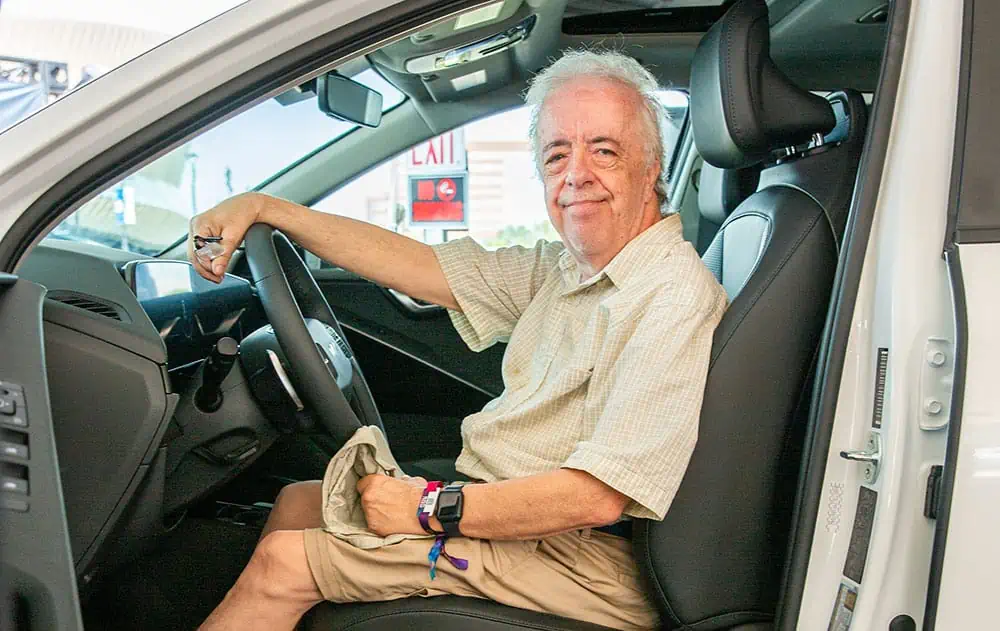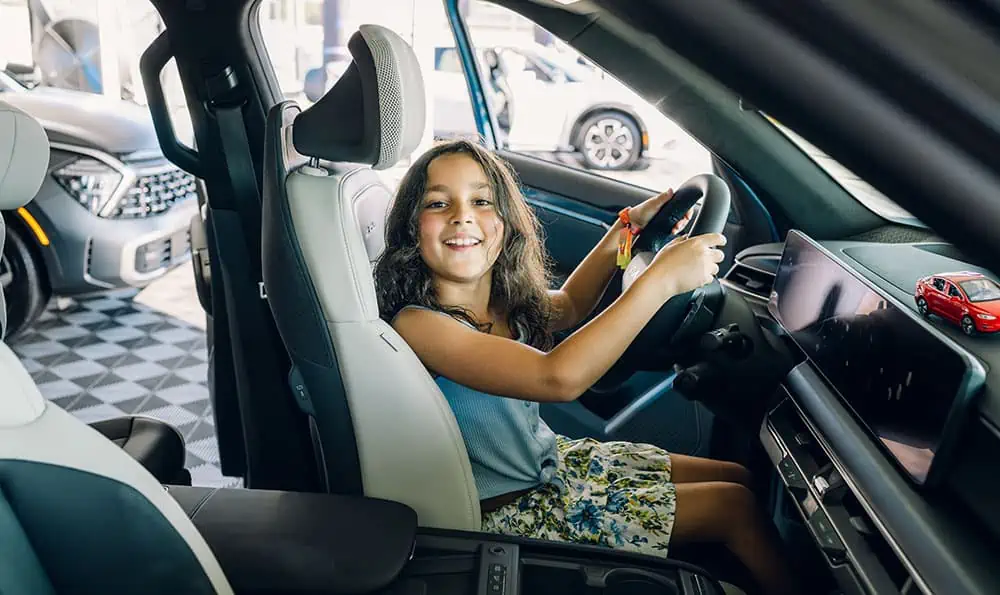EV Adoption Generational Divide: Brand Preferences & Market Dynamics
At the most recent Electrify Expo in Austin, Texas, in November 2023, people of all ages enjoyed viewing electric vehicles (EVs) of all types, including cars, trucks, e-bikes, e-scooters, and more. The attendees also had exciting opportunities to personally try out the vehicles with ride-and-drive tracks at the event. This outstanding event was a great example of how people of all ages and from all walks of life are joining the worldwide e-mobility movement. Electric vehicle adoption is now undeniably unstoppable and is growing very rapidly throughout the globe. EVs are replacing polluting gas-powered internal combustion engine (ICE) vehicles with hybrids and clean, zero-emission, eco-friendly battery electric vehicles (BEVs). However, all generations are not equal in accepting EVs, creating a generational divide. There is an electric vehicle generation gap in EV interest, which we discuss below.

Generation Y/Z vs. Boomers in EV Preference
It’s an exciting time for younger generations, many of whom will most likely see the last gas-powered vehicle produced in their lifetimes. Generations Y and Z are the generations with the most consumer interest in electric vehicles, as evidenced in a June 2022 report by Ipsos, stating: “Almost three-quarters of Generation Y/Z consumers say they are willing to consider a battery electric vehicle for their next purchase. In stark contrast, less than 30% of Boomers share this same sentiment. To complicate matters further, interest among Gen Y/Z buyers has actually grown more in the past three years than for Boomers. In other words, this gap between younger and older buyers is widening.”
Generation X and Millennials Are More Likely to Adopt EVs Than Boomers

A study conducted in 2019 by the “Drive Change, Drive Electric” campaign suggested an electric vehicle generation gap in EV adoption between Generation X, Millennials, and Boomers. The data revealed that Millennials were leading the charge, with 63 percent considering an electric car as their next vehicle compared to just 38 percent of Baby Boomers. According to various other studies on the subject, Boomers are the least likely to adopt EVs among all age groups.
“To date, electric car sales have been dominated by Gen-X men,” said Julia Rege, Senior Director, Environment & Energy, at the Association of Global Automakers about the campaign. “However, with two out of three Millennials considering an electric car for their next vehicle, we could see a substantial shift in the marketplace. This promising news suggests that we are on the brink of a technology revolution that will ultimately be driven by Millennials. Baby Boomers may take longer to learn about this great technology and get comfortable with it, but they won’t be far behind.”
Shifting Demographics: Understanding the Electric Vehicle Generation Gap
According to a May 2022 report by Statista, there is a noticeable shift in the potential buyer demographics for EVs, offering proof of a wide electric vehicle generation gap. Young people aged between 18 and 29 were the most likely to consider purchasing an electric vehicle in the United States, with 55% expressing a likelihood to consider buying an electric car. This marks a stark contrast to the older generation, aged over 65, where only 31% showed an interest in this vehicle segment.
The report also observed that the likelihood of purchasing an electric vehicle depended on consumers’ previous knowledge of EVs. This implies that increased awareness and understanding of EV technology is a significant factor in driving further adoption across all age groups, which we recommend EV marketing leaders pay close attention to.
Generational Differences and Brand Preferences in the EV Adoption Market
Despite the generational gap, Baby Boomers, Generation Y, and Generation Z have all shown considerable interest in the electric vehicle (EV) market. However, differences in their preferences and purchasing power highlight the unique challenges and opportunities for EV manufacturers. Baby Boomers have the most financial capacity of all age groups to accommodate the higher pricing of contemporary BEVs.
Generations Y and Z exhibit a much stronger inclination towards BEVs. Their preference for more innovative brands like BMW and Audi suggests a potential shift in the EV market dynamics. Baby Boomers show a preference for more established brands like Toyota, Honda, and Ford, suggesting that these manufacturers may have a competitive advantage within this demographic if they can effectively transition further into the BEV market.
Younger Generations Are More Conscious of Climate Change and More Supportive of EVs

Generations X, Y, and Z are most aware of the evidence of climate change and show the most concern about it. The youngest people will have to contend with the most harmful effects of climate change in the future, as the planet is making progress in reducing carbon emissions, but not quickly enough.
Because electric vehicles (EVs) have zero emissions, they are an obvious environmental solution to replace gas-powered, internal combustion engine (ICE) vehicles, which contribute to global warming and climate change due to their carbon emissions. However, for most buyers, price, convenience, and availability remain the most significant factors in EV adoption.
Socioeconomic Factors Weigh Heavily on the Ability to Adopt EVs
The electric vehicle generation gap is not the only disparity in EV adoption. Another factor to consider is the economic status of the potential EV adopter, regardless of age. Those who are advantaged are often early adopters of a new technology, such as EVs. A pattern has been identified with early electric vehicle sales, similar to other low- or no-carbon energy technologies such as solar power and battery storage, that the first adopters are typically wealthier and more educated. However, these groups are not always the ones who would benefit most from the cost savings and environmental advantages of these technologies. This paradox is often due to disparities in income, access to resources, and information needed to adopt new technology, biases, and marketing strategies. The average transaction price for electric vehicles remains high, blocking many people’s ownership chances.
Home Ownership Aids EV Adoption

Boomers, as the wealthiest of all generations, are most likely to own a home. Homeownership makes EV adoption easier, as home charging is the easiest EV charging option. For instance, consider a Gen Z student or a young professional living in a walk-up apartment in a bustling city with no consistent parking facilities or residing in a rural college town that lacks adequate charging infrastructure. The feasibility of owning and maintaining a BEV in such scenarios is challenging. On the other hand, homeowners with garages can significantly benefit from the EV revolution as they can conveniently charge their vehicles overnight easily at home.
Availability of Public Charging Stations Is a Significant EV Adoption Barrier, Regardless of Age
Across all age groups, many barriers to EV adoption continue to exist. One of these is charging station availability. Many people, especially multi-family unit dwellers, rely heavily on public charging stations, the availability of which can be sparse. This uneven distribution and accessibility of charging infrastructure pose a substantial hurdle in the widespread adoption of BEVs. In February 2022, the U.S. Department of Transportation released a report titled Charging Forward, a Toolkit for Planning and Funding Rural Electric Mobility Infrastructure, giving guidance on how to plan more charging infrastructure for BEVs in rural areas, where it is desperately needed. Due to this lack of charging infrastructure, range anxiety in electric vehicles is still an issue for many Americans.
How Can the Electric Vehicle Generation Gap Be Addressed?

Governments at all levels, as well as forward-thinking companies, organizations, and EV advocates around the globe, are working to remove barriers to EV adoption. Despite the multiple barriers, these efforts produce results as EV adoption continues to grow rapidly. The U.S. government has made much progress in the last few years. However, more can be done by the government, such as subsidies to EV companies like those employed by China, the global leader in EV production. Lower-priced EVs are desperately needed and will allow those with lower incomes, including younger people, to afford to make the switch.
Education about EV adoption is critical and should be increased throughout all market sectors. Public service announcements by the government should be increased, as well as funding for nonprofits such as Veloz. “Kicking Gas” was a campaign powered by Veloz. This wildly successful electric vehicle awareness and education campaign was launched in 2019 and featured the ever-popular character Howard Kleiner, played by Arnold Schwarzenegger. The campaign presented a humorous and engaging approach to promoting electric vehicles, demystifying misconceptions and shedding light on their benefits. With Schwarzenegger’s star power and the innovative campaign execution, “Kicking Gas” played a significant role in fostering a positive public perception of electric vehicles.
EV and electric vehicle charging companies are encouraged to implement more education in their marketing. Auto dealers must continue educating their team members on EVs to make the EV buying process more manageable. We suggest that EV adoption education become a priority among all EV industry sectors and government at all levels. Targeting should be directed most prominently at the Boomer demographic, as this age group is the most resistant to EV adoption while having the most resources to make the transition smoothly.

Electric Vehicle Marketing Consultant, Writer and Editor. Publisher EVinfo.net.
Services